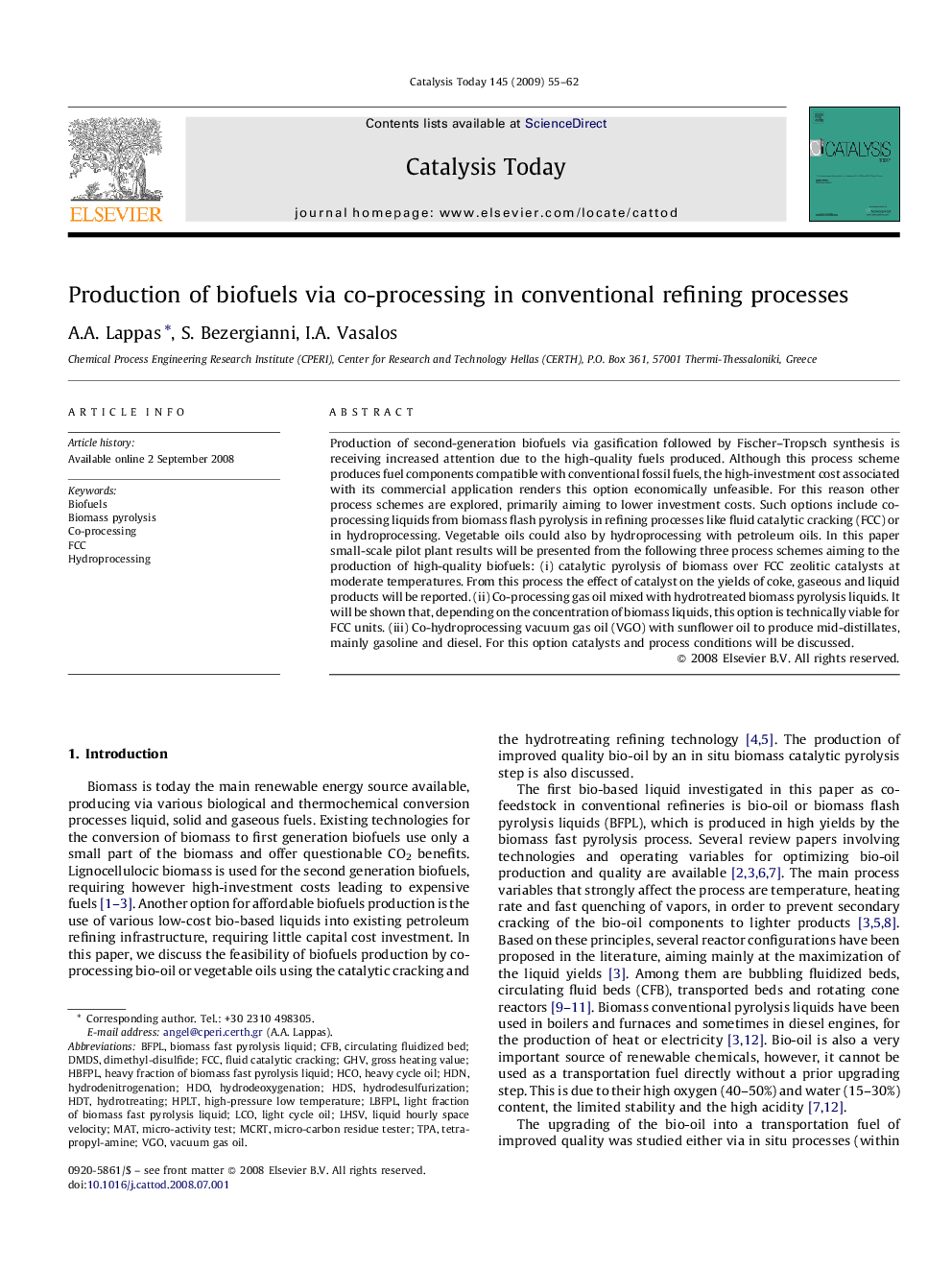| Article ID | Journal | Published Year | Pages | File Type |
|---|---|---|---|---|
| 56956 | Catalysis Today | 2009 | 8 Pages |
Production of second-generation biofuels via gasification followed by Fischer–Tropsch synthesis is receiving increased attention due to the high-quality fuels produced. Although this process scheme produces fuel components compatible with conventional fossil fuels, the high-investment cost associated with its commercial application renders this option economically unfeasible. For this reason other process schemes are explored, primarily aiming to lower investment costs. Such options include co-processing liquids from biomass flash pyrolysis in refining processes like fluid catalytic cracking (FCC) or in hydroprocessing. Vegetable oils could also by hydroprocessing with petroleum oils. In this paper small-scale pilot plant results will be presented from the following three process schemes aiming to the production of high-quality biofuels: (i) catalytic pyrolysis of biomass over FCC zeolitic catalysts at moderate temperatures. From this process the effect of catalyst on the yields of coke, gaseous and liquid products will be reported. (ii) Co-processing gas oil mixed with hydrotreated biomass pyrolysis liquids. It will be shown that, depending on the concentration of biomass liquids, this option is technically viable for FCC units. (iii) Co-hydroprocessing vacuum gas oil (VGO) with sunflower oil to produce mid-distillates, mainly gasoline and diesel. For this option catalysts and process conditions will be discussed.
